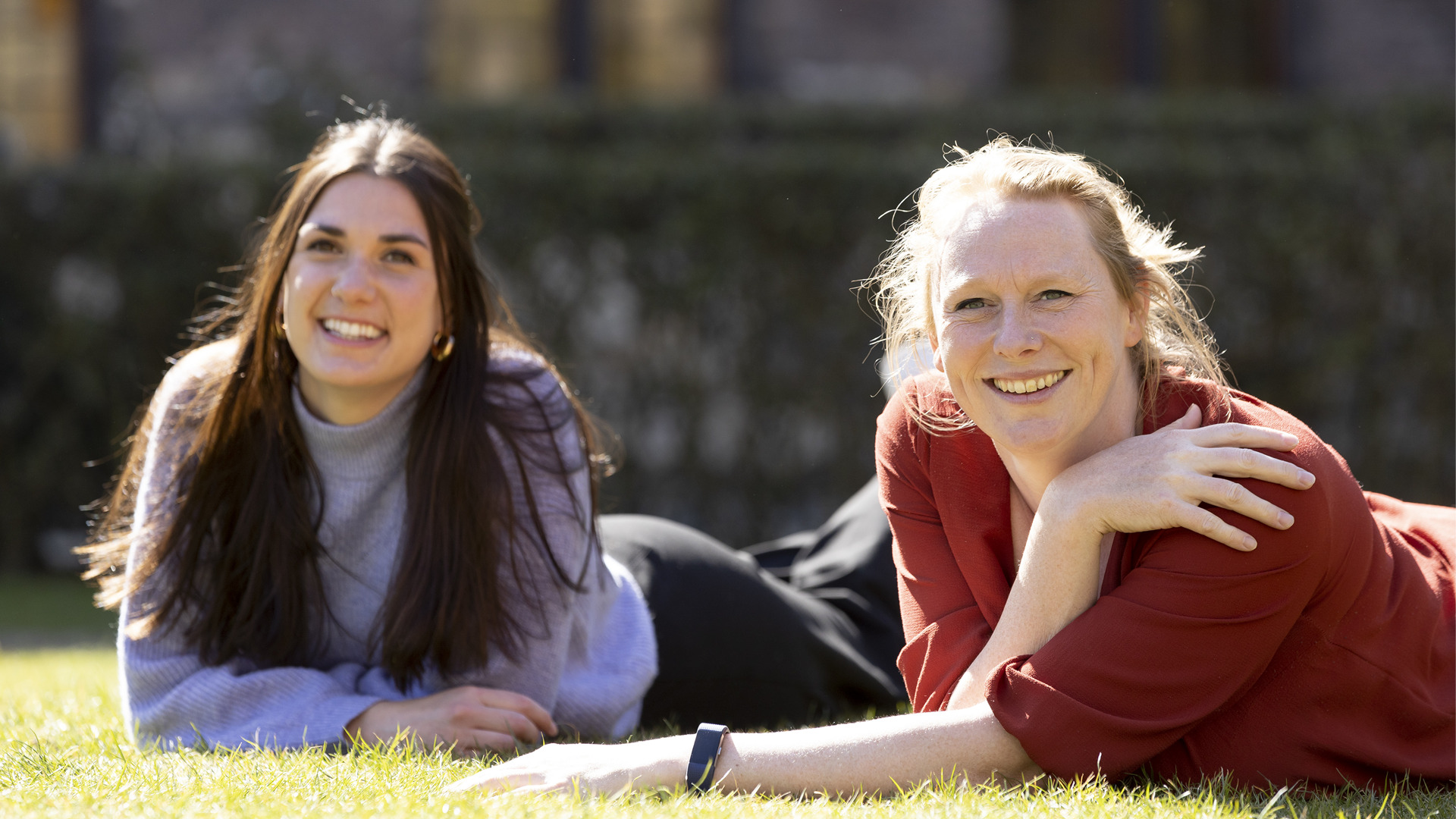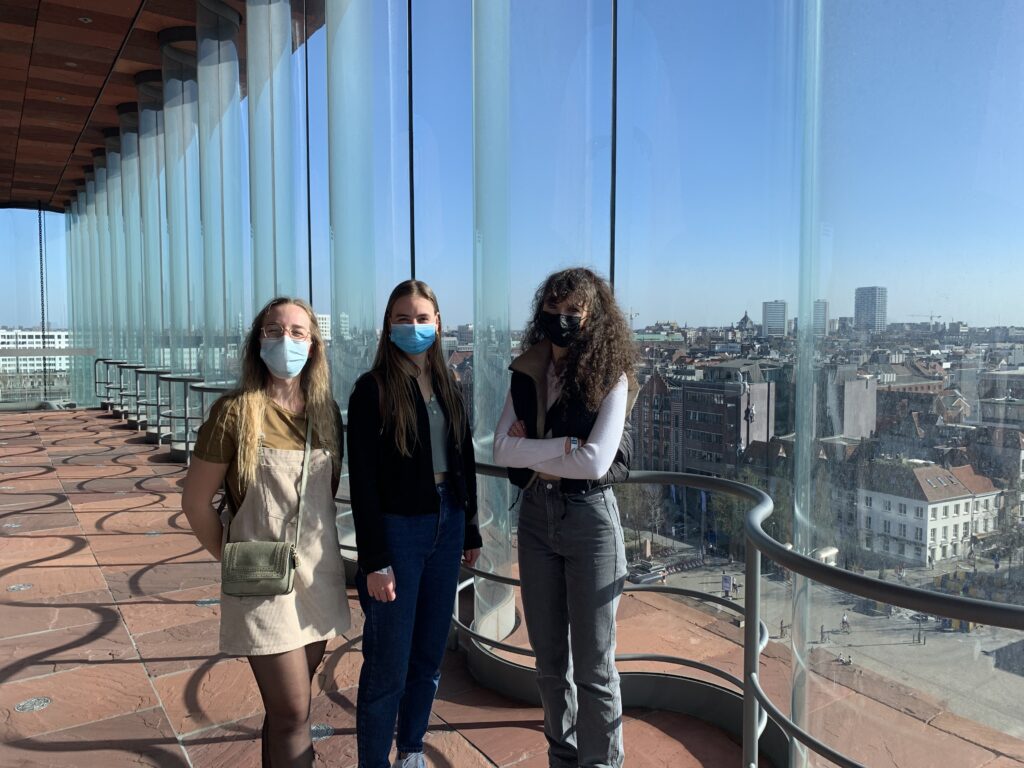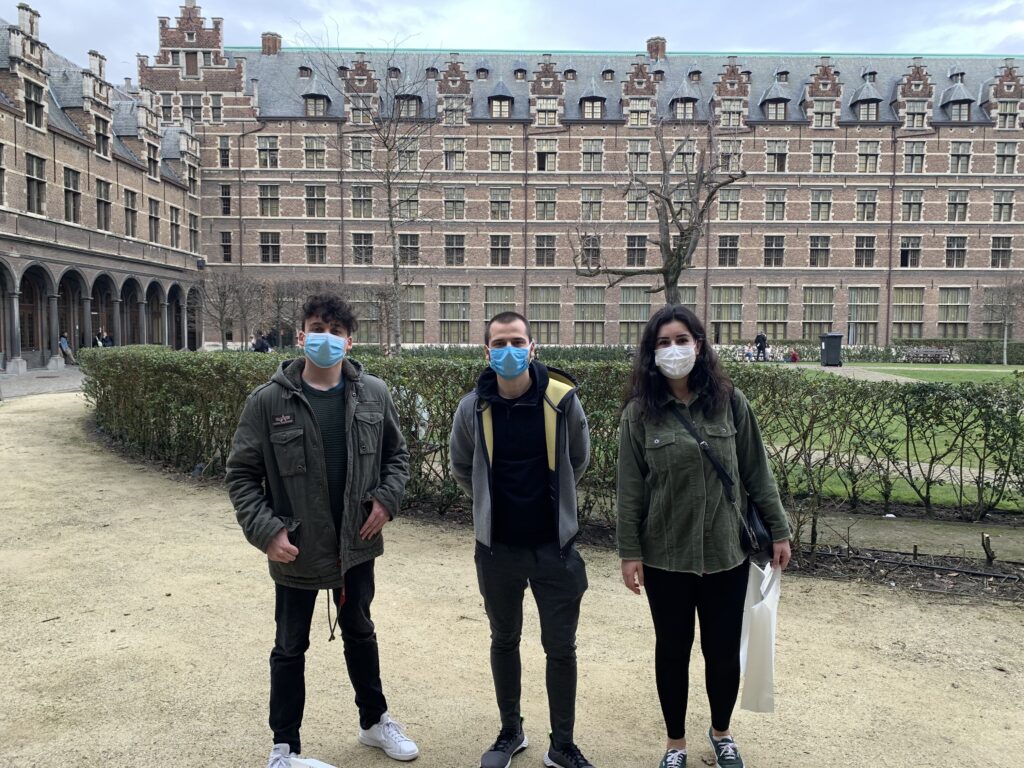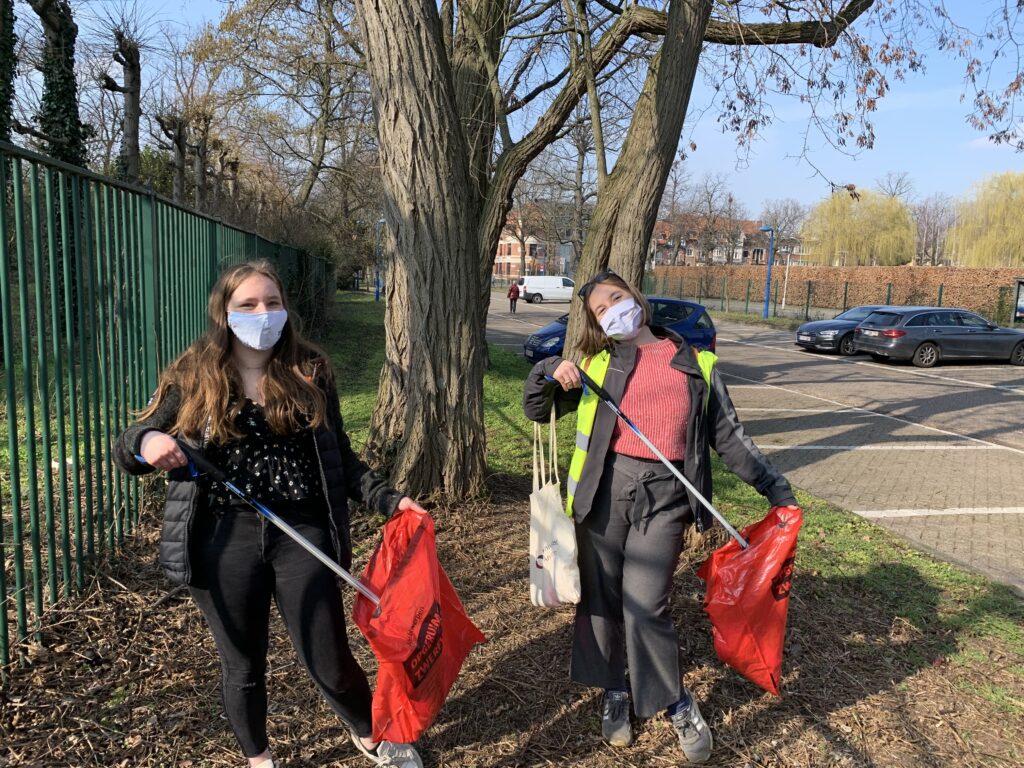With a major prevention project, our university is focusing even more strongly on the mental well-being of its students. Truyken Ossenblok and Femme Swinnen from the Study Advice and Student Counselling Service are in charge of this project. And they want to involve as many colleagues as possible.
Recent surveys have shown that students attach particular importance to high-quality remote learning and a quiet place to study – which comes as no surprise – but more than anything else, they have a strong need for connection and social contact. Many of them are at their wits’ end, and student associations are also yearning to be able to organise physical activities once again. The coronavirus pandemic has made it crystal clear that studying well and feeling good about yourself are inextricably linked.
‘During the first lockdown, we realised right away: this is something big’, says Truyken Ossenblok from the Study Advice and Student Counselling Service. ‘Back then, the rector and the vice-rector for Education decided to make extra funds available to offer psychological support to students, at least until December 2021. That’s how this project started.’
‘Our university already offers a lot of support to students with mental problems or with a vulnerable background, but with this project, we’re adding a layer of prevention.’
Truyken Ossenblok – Study Advice and Student Counselling Service
It was to become a sustainable project that would remain useful long after the pandemic. In the short term, the aim is to offer students extra support during this health crisis, but in the long run, the ambitions are higher. Truyken: ‘We want to incorporate the mental well-being of students into the DNA of our university, with structural initiatives on mental health literacy. We’re explicitly targeting the broad group of students who have voiced minimal to no complaints, as our intention is to prevent problems before they arise’, says Femme Swinnen, who also works at the Study Advice and Student Counselling Service.
Even before COVID-19, there was an unmistakable demand for more attention to students’ mental well-being. ‘Our university already offers a lot of support to students with mental problems or with a vulnerable background, but with this project, we’re adding a layer of prevention’, explains Truyken. ‘In doing so, we’re shifting the focus from the student as a studying person to the student as … a person. In the Netherlands and Great Britain, the mental well-being of students has been a very important issue for some time, since well before the pandemic. We can draw inspiration from those countries.’
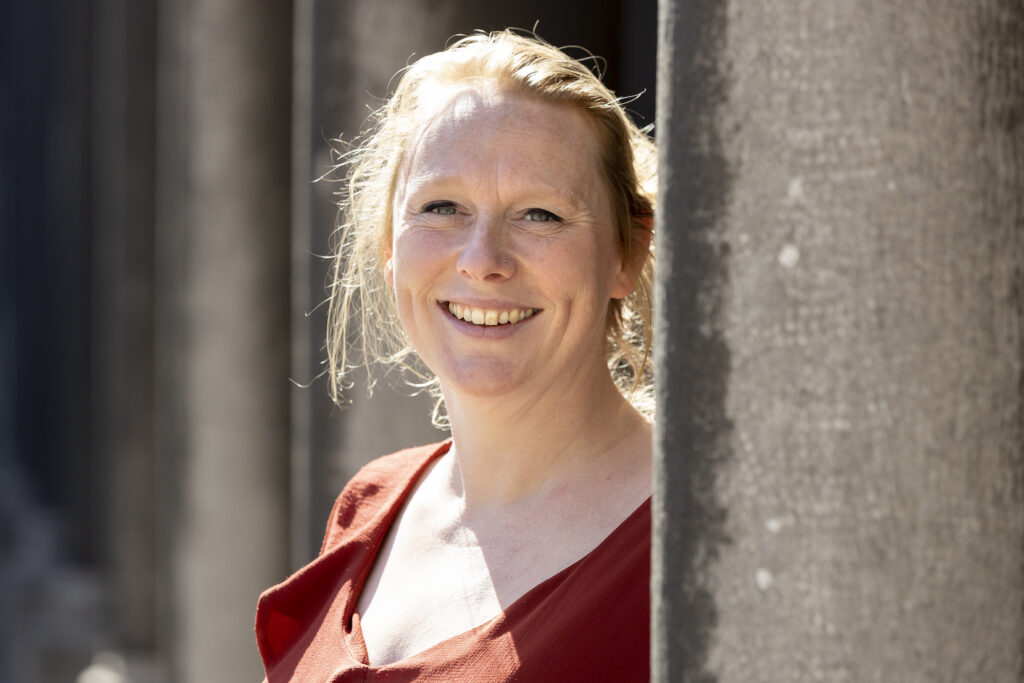
The project is built around five main pillars: connection, awareness, early identification and signalling, professionalisation, and optimisation of the existing support offer. The initial phase consisted of mapping the existing initiatives and scientific research on the subject, both within and outside our university. Surveys were organised via focus groups, involving not only lecturers and study programme counsellors, but students as well. The project focuses on first-year students, bridging programme students and international students. Femme: ‘What they all have in common is that they’re new to our university. For them, there was a very clear need for social contact and a low-threshold support offer.’
Strong Together
On the basis of all these findings, a plan of action was drawn up. This resulted in a set of introductory activities under the name ‘Samen Sterk’ (Strong Together), in cooperation with the Department of Marketing and Communication, the Rubi Cultural Service, the Sports Service, Students for Students, Greenoffice (the student platform for sustainability), and the students themselves. Femme: ‘We want to give new students in particular a chance to build a social network. Since January, we’ve been offering all kinds of live activities in small groups, ranging from an Art & Culture Walk to playing sports together. Anyone who’s interested can register, and then students with similar interests are matched. Over 200 students have already registered for at least one activity. And the initiatives are clearly catching on, because many students are signing up for multiple activities, and they keep coming back. The strength of the concept also lies in the fact that we’re joining forces with different services.’
Besides introducing students to one another, the aim is also to establish a greater connection with our university and to strengthen the community feeling. An important tool to accomplish this will be the new UAntwerp app, which is still being developed. Students will be able to use it to find information about every possible facility and service. ‘UAntwerp will be in everyone’s pocket, so to speak. And if it were up to us, we’d add links to mental well-being and the available support for that’, adds Femme.
Together with their head of department, Hilde Janssens, and their colleagues, Dorien Noyens and Sara Backx, they’re also working on a professionalisation programme. This is done in partnership with ECHO. The intention is to provide lecturers, but also other staff members, with the necessary tools to support students and to refer them to specialised services wherever necessary. There should also be a detection system that enables both students and the university to detect mental problems early on. Femme: ‘Later this year, we’ll be presenting a vision statement and a long-term plan, so that we can continue to work progressively on the various mental well-being objectives. And here, too, we’ll be working together with our colleagues.’
Getting students on board
The key question in all of this: how do you get students without any specific mental problems to pay attention to this topic? Femme: ‘That’s quite a challenge indeed. We’re planning an awareness campaign to make students stop and think about the importance of mental well-being, and to point them to basic information on the subject: how do I recognise alarm signals in myself, or in my fellow students? What can I do about them?’
‘We see this project as a big snowball that we hope will only get bigger along the way.’
Truyken Ossenblok – Study Advice and Student Counselling Service
Truyken: ‘We want it to be perfectly normal for students to think about how they feel. We’re seeing so much stress and burnout today. Ideally, we would deliver a new generation that is better equipped to deal with this. How do I stay in touch with myself? How do I restore my inner balance when things haven’t been going too well? We have to break the taboo surrounding mental well-being, and we all need to keep focusing on it long after this pandemic.’
Entering society as stronger individuals
Throughout the whole project, a key concept is cooperation. Students and faculties are given a voice in the development of actions, and a broad-based interdisciplinary think tank was established to provide advice and ideas. This think tank includes the department heads of ICT, Education, University & Society, Communication, and Social, Cultural and Student Services, as well as study programme counsellors, students, a student psychologist, the Diversity Team, the head of the International Students Office, experts on the subject, a BAP member, and the coordinator of ‘Monitoraat op Maat’.
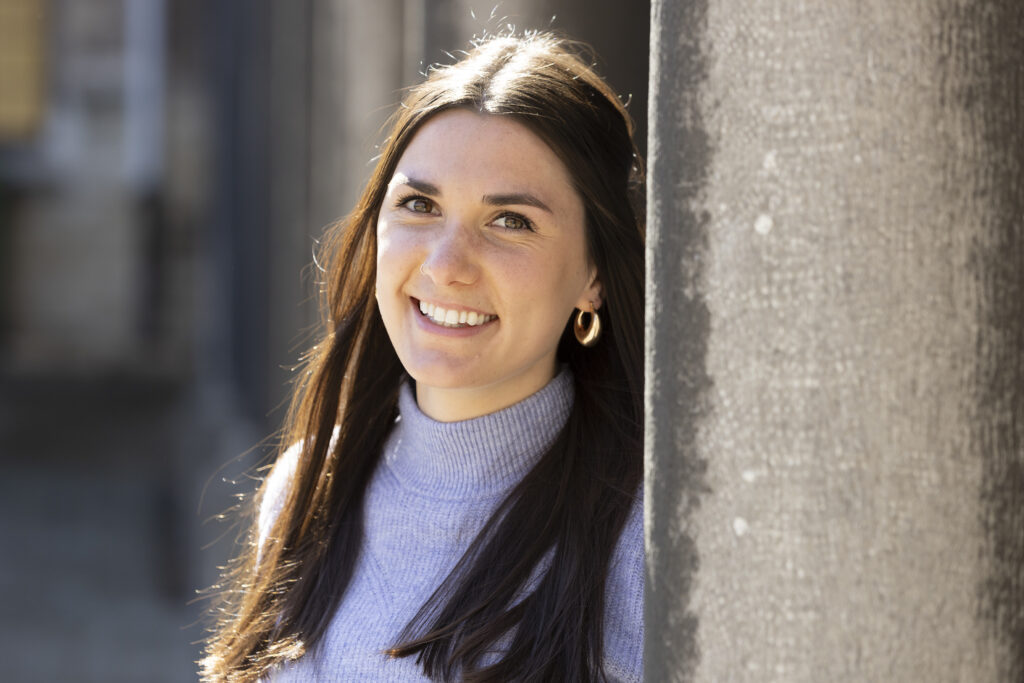
Truyken: ‘We need help from everyone if we want to accomplish our mission to provide support to anyone who needs it. Within our university, many colleagues are already involved in initiatives on mental well-being. Attention is paid to it at every level. What we want to do is integrate these initiatives wherever possible. We see this project as a big snowball that we hope will only get bigger along the way. So our door is always open to anyone who has questions or ideas or wants to collaborate’, adds Femme.
The project will end in December of this year. But if it were up to Truyken and Femme, the university would make mental well-being a permanent point of attention. ‘We’re excited and eager to flesh this out, but more than anything we’re thinking of the students, who will benefit greatly from this. Once they gain more insight into their own mental well-being, their time at university might go from daily struggle to smooth sailing, and they could enter society as stronger individuals. Wouldn’t that be great? As a university, we can take on a new, valuable role in this regard’, concludes Truyken.


